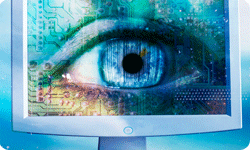The dangers of internet censorship
 Larry Stillman
Larry Stillman
I GLANCED through an old book before I started to write this article. It’s nearly 40 years since Geoffrey Dutton and Max Harris published Australia’s Censorship Crisis, and aside from the fact that electronic systems of communication are now pervasive, nothing much seems to have changed in how governments behave and react to communications that appear to threaten our morality or national security.
Back when such threats to the community as Lady Chatterly’s Lover or Portnoy’s Complaint led to suitcases being searched at ship terminals or airports, Dutton concluded his chapter with: ‘Of course children need protection, and always will. But Australia is not a nation of children.’
Thus, in the current climate of moral panic about the effects of online pornography, Dutton’s observation should be kept in mind. Society has every right to protect children, but how we protect them is the question. Thus, Senator Conroy’s recent suggestion that the Australian Communications and Media Authority’s secret blacklist of sites (supposedly only child pornography, pro-rape and incest) is up to scratch is scary.
As recent leaks from Wikileaks have shown, the secret list is itself full of holes, often out of date, and has even covered political sites, and by accident, a dentist’s site that had been hijacked by the Russian mafia. Thus, to think that well-intentioned but pressured bureaucrats can manage to get a perfect score in what they classify is preposterous, and even more preposterous was the Minister’s suggestion that software could be 100 per cent effective to only include the really nasty stuff.
Under the current regime, sites covering euthanasia, abortion and terrorism could be covered under the internet service provider filters. The ridiculousness of it all was proven with the excuse of ‘technical error’ for including PG-rated website photos by Bill Henson on the list. Given the complexity of the legal system, if the system goes into operation anyone whose site is hijacked or accidentally included is going to have a long wait for a remedy, with lost income and reputation to boot (if they have the money to go to court, that is). But worst of all is the fact that much of the worst pornography is not on the web, but contained in private bulletin boards, emails or other services that are impossible to police.
We also need to keep in mind the broader application of current security laws and their censorship of print materials in the current environment. Anti-terror legislation was used in 2006 to refuse classification for two pro-terrorism books from Islamic sources. The Australian Federal Policy have questioned a student for borrowing books on Palestinian terrorism. Yet, while writing this piece, I downloaded a copy of one of the banned Islamic terrorism books.
The answer: think about what Dutton and Harris suggested. ‘Instead of secret decision-making, we must possess the civil right to test the competence of the banners, the consistency of standards, and application or misapplication of laws which may be good, indifferent, or rotten. If we cannot do this, then we live under a system of immoral autocracy.’
That is how we need to treat the issue of contemporary porn and terror — with public caution, supervision and extreme technical care.
Dr Larry Stillman is a Senior Research Fellow at the Centre for Community Networking Research, Faculty of Information Technology, Monash University, and a Committee member of Liberty.
